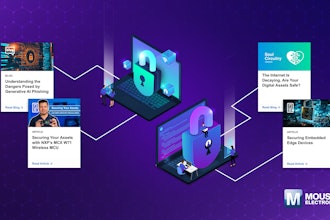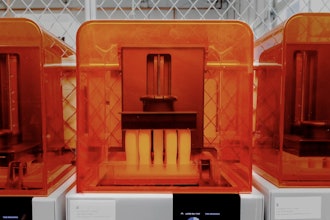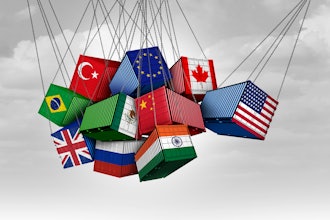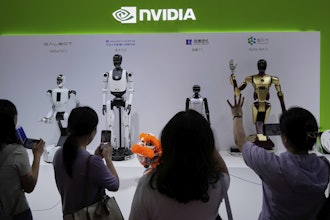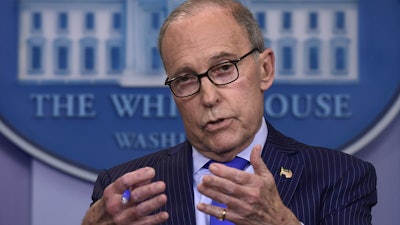
The Trump administration is reportedly working with a collection leading U.S. tech companies on an effort to close the nation’s gap with China’s Huawei on next-generation telecom networks.
White House economic advisor Larry Kudlow told The Wall Street Journal that AT&T, Dell and Microsoft are among the companies collaborating on advanced software for what’s known as 5G.
U.S. wireless carriers are already rolling out 5G-capable phones and limited 5G networks, but much more infrastructure will need to be installed to deploy the significantly faster networks on a broad scale. Huawei is considered the global leader in 5G telecom equipment, but the U.S. is wary of its links to Beijing and has urged allies to avoid using Huawei equipment to upgrade their networks — with mixed results.
The White House initiative, according to the Journal, aims to establish agreed-upon engineering standards to allow software developers to deploy 5G systems on a wide range of hardware from many manufacturers. Kudlow suggested that Dell and Microsoft are already working on software and cloud technologies that would effectively replace network equipment.
He told the paper he hopes to have a system up and running over the next 18 months.
“We’re taking a coordinating role among leading companies,” Kudlow said.
Analysts who spoke with the Journal, however, were less optimistic. The U.S. appears to be well behind Huawei’s 5G rollout, and a national 5G project would need to overcome divergent priorities from its many stakeholders. Any effort to render Huawei’s gear unnecessary, for example, would also affect European telecom equipment giants Ericsson and Nokia — and working with those companies could trigger antitrust concerns.
Huawei, which has disputed U.S. allegations that it is a cybersecurity threat, said the government should instead discuss options to license its 5G technology. Andy Purdy, the Chinese company’s top U.S. security official, told the paper that any product generated by a U.S.-led effort would still be “one to two years behind the comparable Huawei products in terms of functionality and assurance.”








